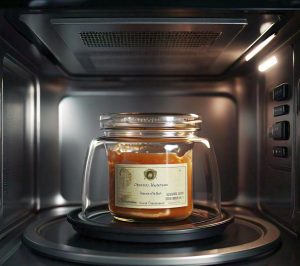A microwave is a common household appliance that utilizes electromagnetic waves to heat and cook food.
The question at hand is whether or not the use of a microwave can cause cancer.
This article will provide an in-depth analysis regarding microwaves and their potential links to cancer, including scientific evidence both for and against this claim. We will discuss how microwaves function, the radiation they emit, and if this radiation could pose a health risk such as causing cancer. In addition, we’ll explore other factors related to microwaving food like nutrient loss due to heating. Furthermore, we’ll also delve into alternative methods of cooking should you wish not to use a microwave out of cautionary measures, along with safety tips when operating one. Frequently asked questions (FAQs) about microwave usage will be included for your convenience as well as our final thoughts on the subject matter.

Jump To:
Can a Microwave Cause Cancer?
No, a microwave cannot cause cancer. Microwaves heat food but they do not alter its composition or emit radiation that would result in carcinogenic effects. Unlike X-rays or ultraviolet light which have ionizing radiation, microwaves use non-ionizing radiation whose energy isn’t strong enough to directly damage cells and induce cancer. Therefore, using a microwave to cook or heat your food does not increase the risk of developing cancer.
Check out if microwave radiation can hurt you.
Facts About Microwave
Here we will discuss the important things to note about a microwave.
- Type: A microwave is a type of electromagnetic wave, specifically within the radio wave spectrum. It’s commonly used for heating food in kitchen appliances.
- Invention: The microwave oven was invented by Percy Spencer in 1945 during radar-related research.
- Frequencies: Microwaves typically use frequencies around 2.45 gigahertz (12 cm) for household cooking appliances.
- Mechanism: They work on the principle of dielectric heating by vibrating water molecules in food, creating thermal energy that cooks or heats up the meal.
- Safety Standards: All microwaves are designed to meet safety standards which ensure they do not leak harmful levels of radiation. However, damaged or improperly used microwaves could potentially be hazardous.
Now we’ll cover common questions related to using a microwave.
Check out if a microwave can leak radiation.
What are the Alternatives to Using a Microwave?
If you’re looking for alternatives to using a microwave, there are several other methods that can be used to heat or cook food. Traditional cooking methods such as stovetop cooking and oven baking still remain popular choices. For quick heating of leftovers, you could use a toaster oven or an air fryer which also serves as healthier options due to less usage of oil. An electric kettle is perfect for boiling water without the need of a stovetop while a slow cooker provides gentle and uniform heating over extended periods.
Tips for Effectively Microwaving Your Food
Here are a few tips for safe microwaving:
- To ensure even cooking, arrange your food in a ring shape on the plate.
- Cover dishes with a microwave-safe lid or wrap them in wax paper to keep moisture in and prevent splatters.
- Stir or flip food halfway through the microwaving time for uniform heat distribution.
- Allow standing time after microwaving since residual heat will continue to cook or warm the food.
- Microwave power levels matter – choose lower settings for delicate foods like fish, and higher ones for items like casseroles and meatloaf.
In conclusion, while there have been concerns regarding potential health risks associated with microwave usage including cancer due to its radiation emissions; the evidence does not substantiate these fears.
Now let’s move on to our FAQs segment where we address common questions related to this topic further.

Frequently Asked Questions (FAQs)
In this section, we will now look at the most commonly asked questions related to microwaving and heating.
Can a microwave cause cancer?
No, a microwave cannot cause cancer. Microwaves emit non-ionizing radiation that heats food but does not alter its chemical or molecular structure. Unlike ionizing radiation, it doesn’t have enough energy to damage DNA directly and induce cancerous changes. However, proper usage is essential for safety as extensive exposure can lead to thermal burns.
Does microwaving kill nutrients in food?
No necessarily, microwaving does not kill nutrients in food more than any other cooking method would. In fact, it may preserve certain vitamins due to shorter cooking times compared with conventional oven methods. However, overcooking might lead to nutrient loss irrespective of the heating method used.
Is standing near a microwave harmful?
No, standing near a microwave isn’t harmful given that microwaves are designed with shielding and containment measures that prevent leakage of micro-radiations beyond permissible limits set by global safety standards bodies; so there’s no significant risk posed by staying close during operation.
Do microwaved foods retain their original taste and texture profile?
The taste and texture of foods after being microwaved largely depend upon various factors including power settings and duration of heat exposure. While some foods warm up nicely without altering their initial attributes significantly others might need careful handling due to moisture-induced texture changes or uneven heating patterns.
Check out if you can eat microwave popcorn while pregnant.
We hope these answers provide clarity about using your microwave safely while busting the common myths attached!
Final Word
Microwave ovens offer convenient quick-heating solutions making them indispensable kitchen appliances. Understanding their workings, adhering to safe practices and dispelling unfounded fears can help you make the most of them for your daily cooking needs. Rest assured, a microwave cannot cause cancer nor does it inherently destroy food nutrients more than other traditional heating methods!



